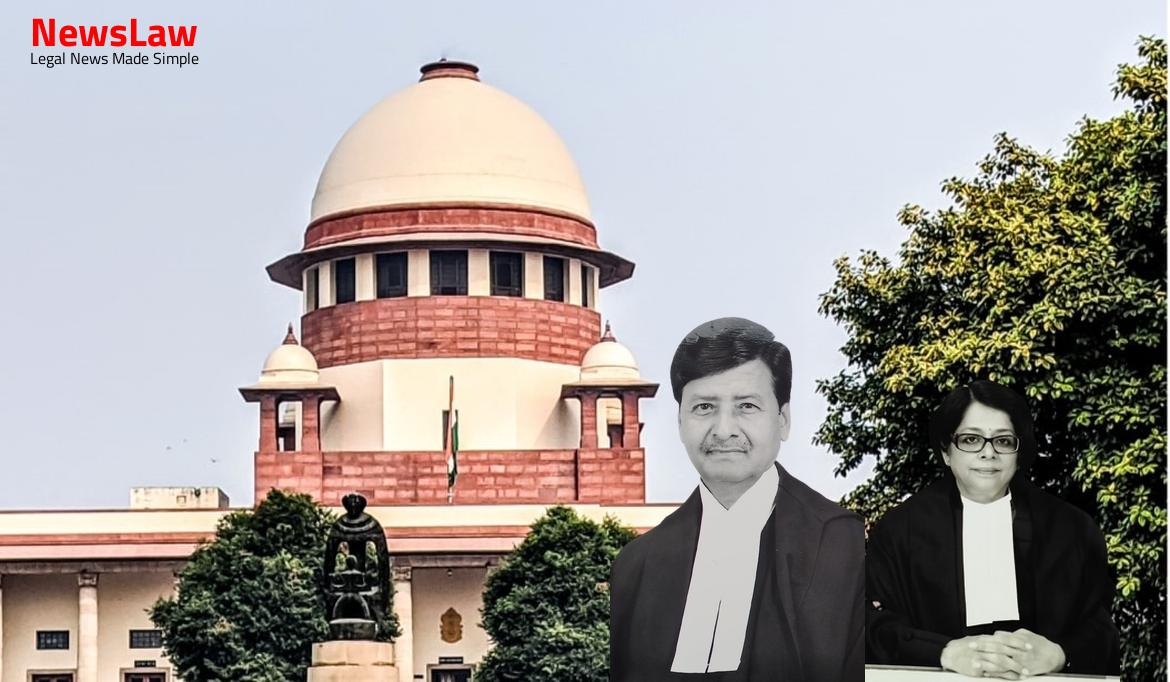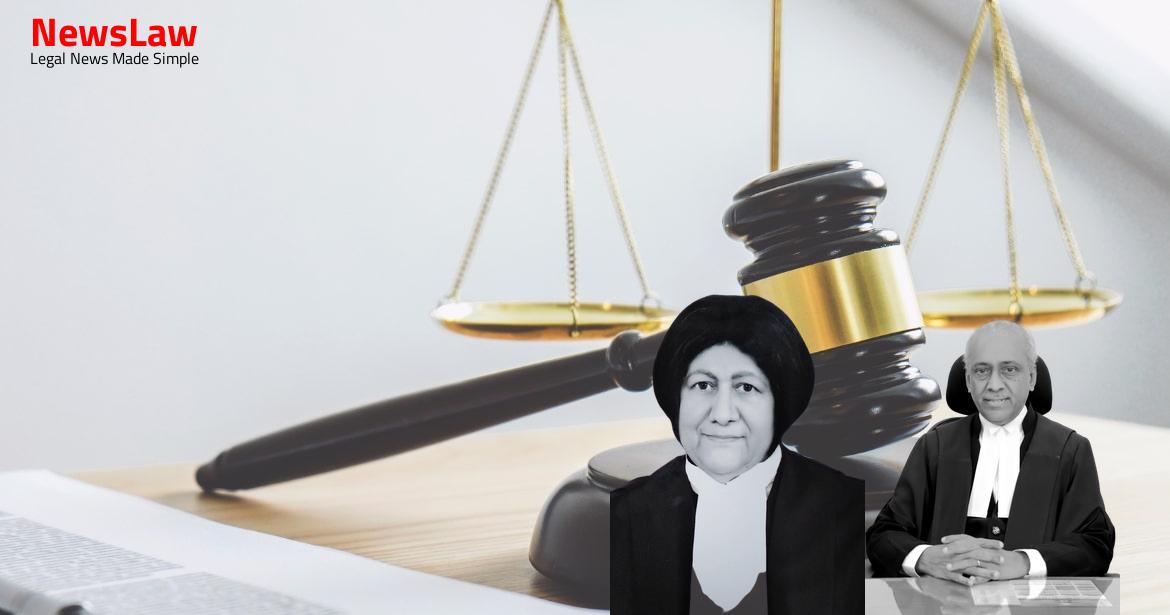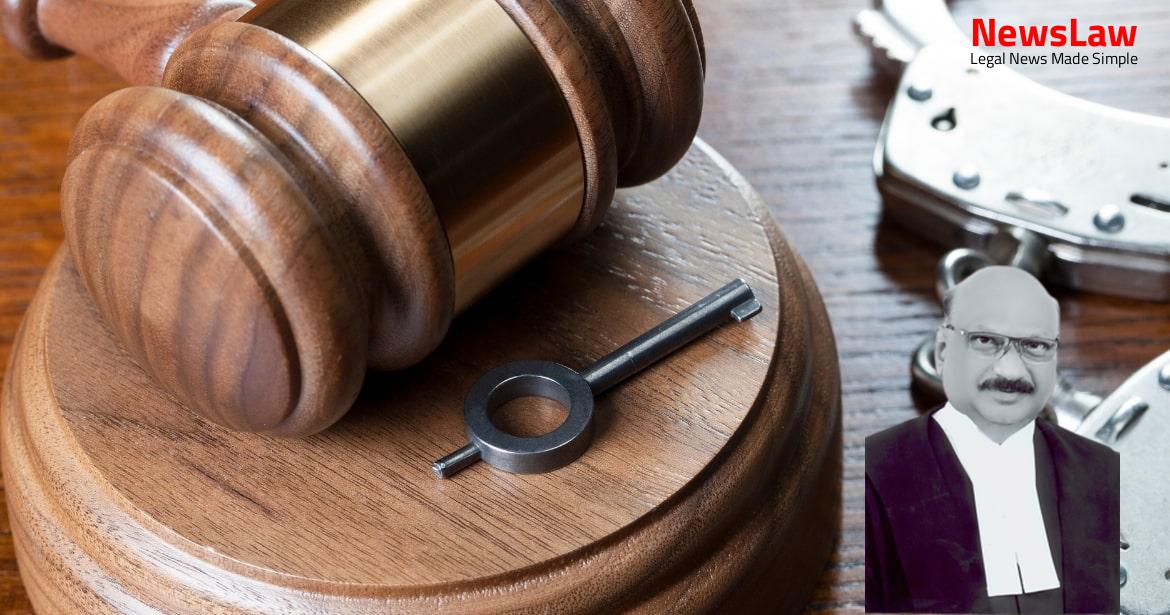The Fast Track Court convicted the accused Bangali who is not before this Court for the offences punishable under Section 148 of the Indian Penal Code (for short, ‘IPC’), Section 302 of IPC as well as Section 307 read with Section 149 of IPC. The Fast Track Court convicted Kalicharan (accused no.1), Yaad Prakash (accused no.2), Diwan Singh (accused no.3), and Smt. When he reached near the house of Shankar, accused no.1 Kalicharan and his sons, Yaad Prakash (accused no.2), and Diwan Singh (accused no.3) resisted PW-1 and forced him to turn back his bullock cart. Accused no.3 Diwan Singh and accused no.4 Shakuntala Devi were carrying axe in their hands. Accused no.4 Shakuntala Devi is the wife of accused no.1 and mother of 4 accused nos. It must be noted here that though in the FIR, a case was made out that deceased Harpal Singh died to bullet injuries caused by bullets fired by accused no.2 Yaad Prakash, in the evidence, the prosecution witnesses and in particular PW-1, deposed that due to commotion caused by firing of shots by accused no.2, Harpal Singh fell down and later on he was attacked by the other accused. He submitted that as can be seen from the judgments of the Sessions Court and High Court, it has been held that Harpal Singh did not receive any firearm injury but he suffered injuries due to the assault made by the accused nos.1,2 and 4 by weapons in their hands. He submitted that though PW-1 and PW-2 deposed that Harpal Singh is not the victim of bullet injury caused by the firearm used by accused no.2, while recording statements of the accused under Section 313, the only circumstance put to the accused is that Harpal Singh died due to four to five shots fired by accused no.2, Yaad Prakash. Shri Vinod Diwakar, learned Additional Advocate General for the State of Uttar Pradesh firstly submitted that the advocate for the accused had cross-examined the material prosecution witnesses including the two eye-witnesses on the prosecution case that Harpal Singh died due to assault made by the appellant nos.1,2 and 4 by the weapons in their hands.
The condition precedent for attracting offences punishable under Sections 148 and 149 is that there should be an unlawful assembly as provided in Section 141 of IPC. The official English translation of the said two charges made by the High Court reads thus: “Third : That on the above said date, time and place, you the accused Yaad Prakash opened 45-5 gunshots with the country pistol holding in your hand at the complainant Atar Singh and his family members with intention to kill them that hit to the cousin brother of complainant namely Harpal Singh. Fourth : That on the above said date, time and place, you the accused Yaad Prakash out of the accused persons, had opened fire with country pistol at Harpal Singh in furtherance of your common object and committed murder of Harpal Singh on the spot which is punishable offense u/s 302/149/IPC and is within the cognizance of the Court.” (emphasis added) 10.
The official translation of the material part of the allegations in the said written report reads thus: “….Thereafter, the accused persons went to their home and then Kalicharan armed with lathi, his sons namely Yad Prakash armed with country made pistol (315), Bangali armed with chhura and Diwan Singh armed with knife and Kalicharan’s wife Smt.
Also Read: https://newslaw.in/case-type/civil/moratorium-application-in-insolvency-case/
Thereupon, accused Yaad Prakash opened 4-5 fires and hearing the noise of fire, my family members namely Malkhan Singh, Ramavtar, Saroj, Rajni, my sister Rani Devi and my wife Rani, Harpal Singh and others had come. We have quoted the third charge above which is based on the allegation in the FIR that Harpal Singh suffered injuries due to bullets fired by accused no.2 and that he died due to the bullet injuries. The object of the provisions regarding the framing of charge is that accused should be in a position to 14 effectively defend himself. That is why there is a specific requirement incorporated in Section 213 that if the particulars mentioned in Sections 211 and 212 do not give the accused sufficient notice of the matter with which he is charged, the charge shall also contain such particulars of the manner in which the alleged offence was committed as will be sufficient for that purpose. Though the case of the prosecution as can be seen from 16 the evidence is that accused nos.1, 3 and 4 committed the murder of Harpal Singh by using sharp weapons in their hand, there is no charge framed against accused nos.1, 3 and 4 alleging that they murdered Harpal Singh. (2) If the Court of appeal, confirmation or revision, is of opinion that a failure of justice has in fact been occasioned, it may,— (a) in the case of an omission to frame a charge, order that a charge be framed, and that the trial be recommended from the point immediately after the framing of the charge; (b) in the case of an error, omission or irregularity in the charge, direct a new trial to be had upon a charge framed in whatever manner it thinks fit: Provided that if the Court is of opinion that the facts of the case are such that no valid charge could be preferred against the accused in respect of the facts proved, it shall quash the conviction.” When the Court of appeal is called upon to decide whether any failure of justice has been occasioned due to omission to frame a charge or error in the charge, the Court is duty bound to examine the entire record of the trial including all exhibited documents, depositions and the statements of the accused recorded under Section 313. Power to examine the accused.—(1) In every inquiry or trial, for the purpose of enabling the accused personally to explain any circumstances appearing in the evidence against him, the Court— (a) may at any stage, without previously warning the accused put such questions to him as the Court considers necessary; (b) shall, after the witnesses for the prosecution have been examined and before he 19 is called on for his defence, question him generally on the case: Provided that in a summons-case, where the Court has dispensed with the personal attendance of the accused, it may also dispense with his examination under clause (b). Question no.5 put to accused no.3 reads thus:- “Ques 5 – That it has come up in prosecution evidence that on being exhorted by accused 20 Kalicharan, accused Yaad Prakash fired 4-5 shots at complainant Atar Singh and his family members with his country made pistol with intention to kill, that hit complainant’s cousin Harpal Singh and he died on the spot. The material brought on record by the prosecution witnesses (PW-1 and PW-2) is to the effect that Harpal Singh died due to injuries sustained as a result of an attack made by accused nos.1,3 and 4 on him by sharp weapons. In that case, this Court has no doubt referred to the fact that it was important to put to the accused each material fact which is intended to be used against him and to afford him a chance of explaining it if he can. In exercising its powers under Section 342, the court must take care to put all relevant circumstances appearing in the evidence to the accused person. The ultimate test in determining whether or not the accused has been fairly examined under Section 342 would be to enquire whether, having regard to all the questions put to him, he did get an opportunity to say what he wanted to say in respect of prosecution case against him. No coming to the facts of the case, not only that a charge was not framed on the allegation that the death of Harpal Singh was caused due to assault physically made by the accused and in particular accused nos.
What is more serious is that though the prosecution case made out during the trial clearly indicated that the death of Harpal Singh was not caused due to any bullet injury, the circumstance put to all the accused under Section 313 was that the death of Harpal Singh was caused due to four to five shots fired by accused no.2 by a country-made pistol. Therefore, in the facts of the case, by reason of omission to frame a proper charge in terms of Section 213 of CrPC, and by reason of not putting important circumstances appearing in the evidence in the statement under Section 313 caused serious prejudice to the accused. 1,2 and 4 were convicted for the offences under Section 307 of IPC with the aid of Section 149. We may note here that the accused Bangali was convicted under Section 302 of IPC for committing the murder of Rani without the aid of Section 149 of IPC. 28 ITEM NO.1502 COURT NO.2 SECTION II S U P R E M E C
O U R T
Also Read: https://newslaw.in/supreme-court/acquittal-in-ipc-offences-lack-of-test-identification-parade/
O F
I N D
I A RECORD OF PROCEEDINGS Criminal Appeal No 122/2021 KALICHARAN & ORS. SANJAY KISHAN KAUL AND HON.
Also Read: https://newslaw.in/case-type/criminal/consensual-relationship-and-misconception-of-consent/
Oka pronounced the reportable judgment of the Bench comprising His Lordship and Hon’ble Mr. We set aside the impugned judgments of the Sessions Court as well as the High Court to the extent to which accused no.1 Kalicharan, accused no.2 Yaad Prakash and accused no.4, Smt. (NEETA SAPRA) (POONAM VAID) COURT MASTER (SH) COURT MASTER (NSH) (Signed reportable judgment is placed on the file) 30
Case Title: KALICHARAN Vs. THE STATE OF UTTAR PRADESH (2022 INSC 1277)
Case Number: Crl.A. No.-000122-000122 / 2021



